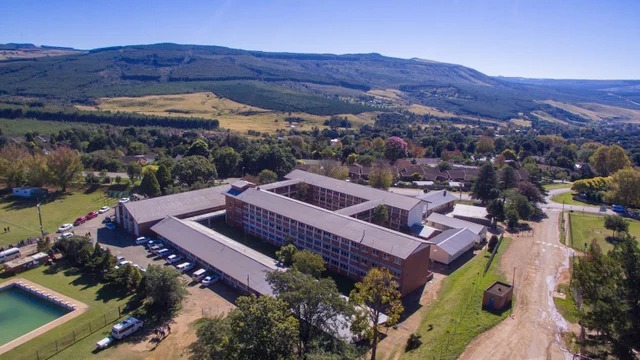
Greytown High School
The KZN Education Department said it is wrong for a school to discriminate against pupils on the basis of their religious beliefs, Nabeelah Shaikh reports.
The South African Muslim Network (SAMNET) has condemned the management of a northern KwaZulu-Natal school for suspending a Muslim pupil for growing a beard in line with his Islamic beliefs.
The Grade 11 pupil at the Greytown High School received a suspension letter last Friday and attended a disciplinary hearing. On Wednesday this week, the family of the boy received a disciplinary outcome letter stating he has been found guilty of breaking the school’s code of conduct, and of refusing a direct instruction to remove his beard from teachers and the headmaster of the school.
The letter states the pupil will receive a suspended expulsion, provided he shaves within seven days of the hearing. He is also expected to provide a declaration signed by him and his parents, stating that he will abide by the school’s code of conduct at all times, going forward.
The pupil’s sister, who requested to remain anonymous, says numerous attempts were made to get the school to understand the significance of the beard in Islam, but they have refused to listen, citing that it was a violation of the institution’s code of conduct.
“My brother has been targeted for his beard for several months now. We attempted to get the issue resolved but our efforts have failed. There was even a point when a Moulana and a member of the community went to the school to engage with management, but that also failed. He began receiving multiple disciplinary notices. Then on Friday, he received a suspended expulsion letter,” said the sister, who once also attended school.
She said her brother is a good student who has never been disrespectful to his teachers, and he is also one of the top achievers at the school.
“This is resulting in him missing out on valuable school time, assignments, tests and other work, which he will have to catch up on. He even missed receiving a sports award because he was busy being disciplined for having a beard,” said the sister.
She said it was unfathomable how the school justifies its case as trying to maintain “uniformity” mentioned in its code of conduct, yet the very same code of conduct states that the school does not discriminate.
“This is about exercising his right to freedom of religion according to the constitution of the country. The school repeatedly tries to justify why they cannot amend a code of conduct that has been there for 130 plus years. The same school didn’t allow the afro hairstyle, which is the natural hair state of African girls. It wasn’t allowed in the school’s code of conduct for years, until around two years ago. This is a diverse country and yet we still get schools that refuse to accept diversity,” said the sister.
She said her family is contemplating legal action.
SAMNET Chairperson, Dr Faisal Suliman, said it was of great concern that the pupil was being discriminated against for keeping a beard in line with his Islamic religious beliefs.
“Despite there being numerous departmental and legislative precedents, this is unfortunately not a unique incident. We recently engaged a parent of another northern KZN school learner being forced to shave by teachers at the school, without parental consent. Over the years, SAMNET has addressed similar issues repeatedly in our schools, workplaces and on social media. It is of great concern that there is a growing lack of tolerance, respect and recognition of diversity of culture and faiths, especially in our schools,” said Suliman.
He said for many young Muslim pupils, keeping a beard was a religious requirement.
“It reflects their faith and values and is linked to their cultural identity. It is similar to that of Sikh wearing a turban, youth completing cultural initiation practices, or choosing to wear a yarmulke,” said Suliman.
Suliman lashed out at the school’s policies, saying there was a disconnect between the words, the policies and behaviours of leadership.
“Policies have to be respected, but where these policies have historic and structural flaws, based on social exclusion, they need to be addressed and amended. Other schools in KZN and nationally have addressed this proactively. Many have implemented inclusive processes to address deviations from uniforms be it for religious, medical, cultural, and other reasons,” said Suliman.
He called on all role-players and schools to reflect on what and how they can all contribute to developing a more inclusive educational environment for learners.
“We have been engaging with senior educators and school leaders to support practical and workable solutions and build greater understanding of the diversity challenges over a number of years. We encourage any school or bodies to engage with us on this or any similar issues,” said Suliman.
When Al-Qalam contacted the school this week, a representative said the principal would not be making any statements on the issue until the pupil’s hearing is finalised, and guidance was received from the KwaZulu-Natal Department of Education.
However, KZN Education Department spokesperson, Kwazi Mthethwa, said that the pupil should not be discriminated against on the basis of his religious beliefs.
“The learner doesn’t even have to explain himself. In this country, as the Department of Education, we have learners from different cultures in our system. Those learners are from the Shembe, Muslim and other faiths. He should not be discriminated against on the basis of his religion. It is wrong. I can say that this is not how we should treat our pupils,” said Mthethwa.
The KZN Education Department confirmed on Thursday that the suspension will be reversed and the pupil would be allowed to return to school.
An online petition against religious intolerance at schools has also been started, as a result of the incident.
On Thursday, DA Member of the Provincial Legislature, Dr Imran Keeka, said he intervened and managed to resolve the matter. Keeka said the pupil would be allowed to keep his beard and the school will retract its letter.











